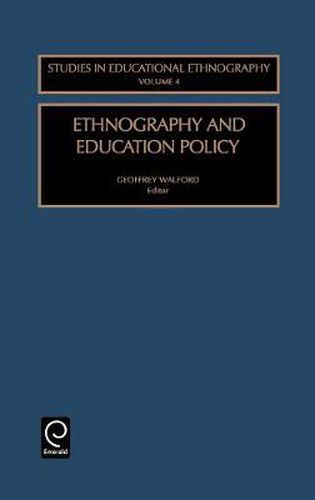Readings Newsletter
Become a Readings Member to make your shopping experience even easier.
Sign in or sign up for free!
You’re not far away from qualifying for FREE standard shipping within Australia
You’ve qualified for FREE standard shipping within Australia
The cart is loading…






This book emphasises the central place that ethnographic work should have in the formulation and evaluation of education policy. Ethnographic studies contribute to a greater understanding of the process formulation, evaluation and critique. First, careful studies of policy initiatives at the local level can show the extent to which change actually occurs in practice. Second, ethnographic studies can investigate the unintended consequences as well as those planned by the policy. Third, ethnography can investigate the effects of policies in such a way that contradictions within the original policy itself are illuminated. As well as studying the effects and impact of policy, ethnography can also be useful in the formulation of new policies. The various chapters gathered together here give many examples of the ways that ethnography can trace the effects of particular policy developments and may be able to influence future policy debates. The contributors and case studies relate to several countries including the United States, Italy, England, France, Sweden and Switzerland, showing not only that ethnographic research in education is now widespread, but also increasing relevance to policy.
$9.00 standard shipping within Australia
FREE standard shipping within Australia for orders over $100.00
Express & International shipping calculated at checkout
This book emphasises the central place that ethnographic work should have in the formulation and evaluation of education policy. Ethnographic studies contribute to a greater understanding of the process formulation, evaluation and critique. First, careful studies of policy initiatives at the local level can show the extent to which change actually occurs in practice. Second, ethnographic studies can investigate the unintended consequences as well as those planned by the policy. Third, ethnography can investigate the effects of policies in such a way that contradictions within the original policy itself are illuminated. As well as studying the effects and impact of policy, ethnography can also be useful in the formulation of new policies. The various chapters gathered together here give many examples of the ways that ethnography can trace the effects of particular policy developments and may be able to influence future policy debates. The contributors and case studies relate to several countries including the United States, Italy, England, France, Sweden and Switzerland, showing not only that ethnographic research in education is now widespread, but also increasing relevance to policy.